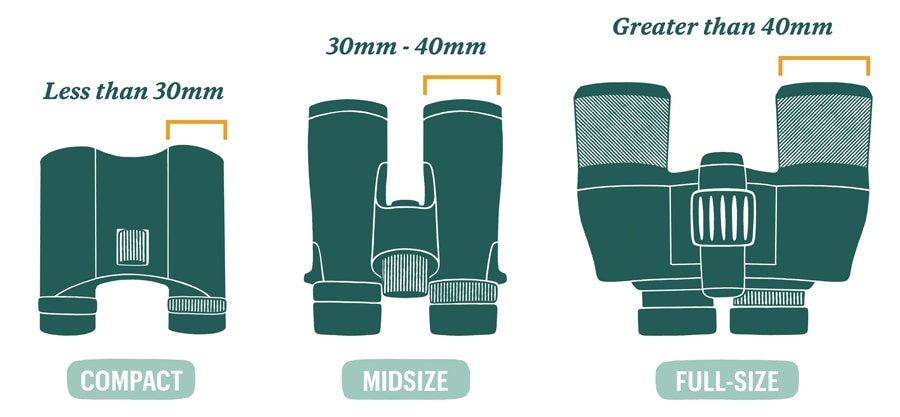The Value of Binoculars in Education And Learning and Scientific Research: Just How These Optical Instruments Contribute to Learning and Exploration
The assimilation of field glasses into educational settings and scientific research is commonly forgotten, yet their payment to boosting empirical skills is significant. In disciplines varying from ecological scientific research to astronomy, field glasses offer as crucial devices that advertise questions and critical thinking.
Enhancing Observational Abilities
In instructional and study setups, the usage of field glasses dramatically boosts empirical abilities amongst trainees and professionals alike. These optical instruments assist in a deeper understanding of distant subjects, making it possible for customers to observe information that would certainly otherwise remain unseen. By using field glasses, learners can analyze wildlife, expensive sensations, and geological formations, promoting a more profound link to the topic.
Field glasses act as important devices in area research studies, encouraging pupils to involve actively with their environment. Via improved observation, they can collect data more properly, bring about enhanced analytical abilities. This hands-on experience enables the growth of important thinking, as pupils need to interpret what they see and connect it to academic knowledge.

Bridging Concept and Technique
Empirical skills developed with the usage of field glasses naturally result in a much more extensive assimilation of academic knowledge with practical application. By engaging in direct monitoring, students can change abstract principles right into substantial experiences. This harmony fosters a deeper understanding of scientific principles as students link theoretical frameworks with real-world phenomena.
As an example, when examining bird biology, pupils can use their expertise of bird makeup and actions via the lens of field glasses, observing attributes such as plumage variant, feeding behaviors, and migratory patterns. This straight involvement not just enhances academic principles yet additionally grows important reasoning and logical skills.
Furthermore, using binoculars encourages students to create theories based upon their observations, thereby enhancing their clinical questions abilities. They can actively test these hypotheses in the area, bring about an extra experiential discovering atmosphere that promotes curiosity and exploration.
In significance, binoculars act as an essential tool in linking the space between class knowing and fieldwork - Binoculars. They encourage trainees to become energetic participants in their education and learning, encouraging an all natural technique to understanding the wikipedia reference all-natural globe and its intricacies. Thus, the integration of concept and method is essential for fostering educated and engaged students
Applications in Environmental Science
Using field glasses in environmental scientific research enhances the capacity to observe and analyze ecological communities with greater precision. These optical tools are vital for performing field research studies, making it possible for researchers to keep an eye on wildlife populations, examine plant wellness, and assess habitat conditions without disrupting the natural surroundings. Binoculars assist in the recognition of species at various distances, permitting researchers to gather vital information on biodiversity and actions.
In ecological research study, field glasses are crucial tools for ornithologists studying avian habits and movement patterns. They make it possible for researchers to record observations over extended periods, adding to useful longitudinal researches - Binoculars. In addition, binoculars play a vital role in habitat evaluations, as they permit the in-depth monitoring of plant areas and their communications within ecological communities
Ecological instructors additionally profit from field glasses, as these tools improve experiential discovering chances. Trainees can engage directly with their surroundings, fostering a deeper appreciation for ecological systems. By including field glasses right into curricula, trainers can influence the next generation of environmental researchers.
Duty in Astronomy Education And Learning
Using binoculars in astronomy education gives an obtainable portal for trainees and lovers to explore holy sensations (Binoculars). Unlike big telescopes, binoculars are mobile, easy to use, and fairly affordable, making them a perfect try here initial device for observing the night skies. Trainees can easily involve with the universes, fostering a hands-on learning experience that boosts their understanding of huge concepts
Binoculars enable individuals to observe a variety of celestial things, consisting of the Moon, planets, and star collections. Importantly, binoculars offer as a bridge to much more intricate astronomical tools, providing fundamental experiences that can trigger deeper rate of interest in the area.
In educational settings, assisted binocular sessions can advertise group partnership and conversation, boosting the learning experience. The common experience of observing holy bodies can grow a sense of neighborhood amongst students. Overall, binoculars play a crucial role in demystifying astronomy, making it friendly and interesting for people at all levels of education.

Motivating Curiosity and Query
Field glasses not just help with the monitoring of holy phenomena however additionally ignite a sense of inquisitiveness and inquiry among trainees. By giving a closer take a look at far-off things, binoculars motivate learners to ask inquiries and discover the environment around them. This tool transforms easy understanding into an active, appealing experience, promoting a much deeper understanding of clinical concepts.
When students use field glasses to observe wild animals, landscapes, or expensive objects, they establish empirical abilities that are essential for scientific query. The act of concentrating on certain information prompts them to formulate hypotheses, carry out examinations, and reason based upon their monitorings. This procedure not just improves their essential thinking abilities but also nurtures a lifelong passion for exploration.
Furthermore, binoculars can bridge the void between theoretical expertise and real-world application. Eventually, the use of field glasses in academic settings offers as a catalyst for inquisitiveness, equipping students to seek understanding with enthusiasm and fostering a feeling of wonder about the globe around them.
Conclusion
In recap, binoculars offer as vital tools in education and clinical research study, significantly boosting observational abilities while bridging the space between theoretical expertise and useful application. Their varied applications in fields such as ecological science and astronomy highlight their importance in promoting inquisitiveness and query amongst students. By assisting in detailed assessments article of remote subjects, binoculars not just inspire the future generation of researchers but likewise grow an extensive gratitude for expedition and the clinical method.